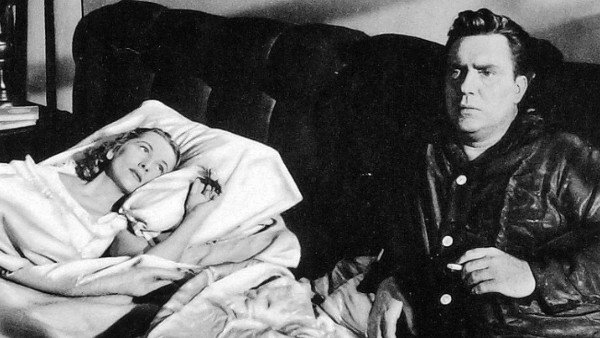The Bigamist
The Bigamist

Screening Schedule
|
No physical screenings scheduled. |
- Direction: Ida Lupino
- Script: Collier Young
- Cinematography: George E. Diskant
- Editing: Stanford Tischler
- Sound: Howard Wilson
- Music: Leith Stevens
- Actors: Edmond O'Brien, Joan Fontaine, Ida Lupino
- Production: The Filmakers
- Producers: Robert Eggenweiler, Collier Young
- Art Direction: James W. Sullivan
- Format: 35mm
- Color: B&W
- Production Country: USA
- Production Year: 1953
- Duration: 79΄
Ida Lupino
Ida Lupino was an English-born American film and television actress, director, and screenwriter who first gained fame through her portrayals of strong, worldly-wise characters and went on to become one of the first women to direct films in Hollywood. Lupino was born into one of England’s most-celebrated theatrical families. A serious performer, she trained at the Royal Academy of Dramatic Art in London before getting her first big break. Promoted as “the English Jean Harlow,” Lupino signed her first Hollywood contract with Paramount in 1933. During the war, Lupino also began to consider how she might expand her motion picture career. In a 1945 interview she talked about “directing or producing or both. I see myself developing new talent” because “I am more genuinely interested in the talent of others than I am in my own.” With her second husband, Collier Young (her first husband was actor Louis Hayward), Lupino founded a production company in 1949 and began writing scripts, tackling such controversial topics as rape, illegitimacy, and bigamy. She made her official directing debut with Never Fear (1949; also known as The Young Lovers). With that film Lupino became Hollywood’s first credited female director since the retirement of Dorothy Arzner in 1943. In 1950 Lupino also became the second woman admitted to the Directors Guild of America. In 1956, she began directing episodes of television shows, and she eventually worked on more than 40 programs. During that time Lupino continued to act. From 1975 a series of health problems impaired her ability to work. Her memoir Ida Lupino: Beyond the Camera (cowritten with Mary Ann Anderson) was published posthumously in 2011.
Filmography
1949 Never Fear
1950 Outrage
1953 The Bigamist
1953 The Hitch-Hiker
1965 The Trouble With Angels














